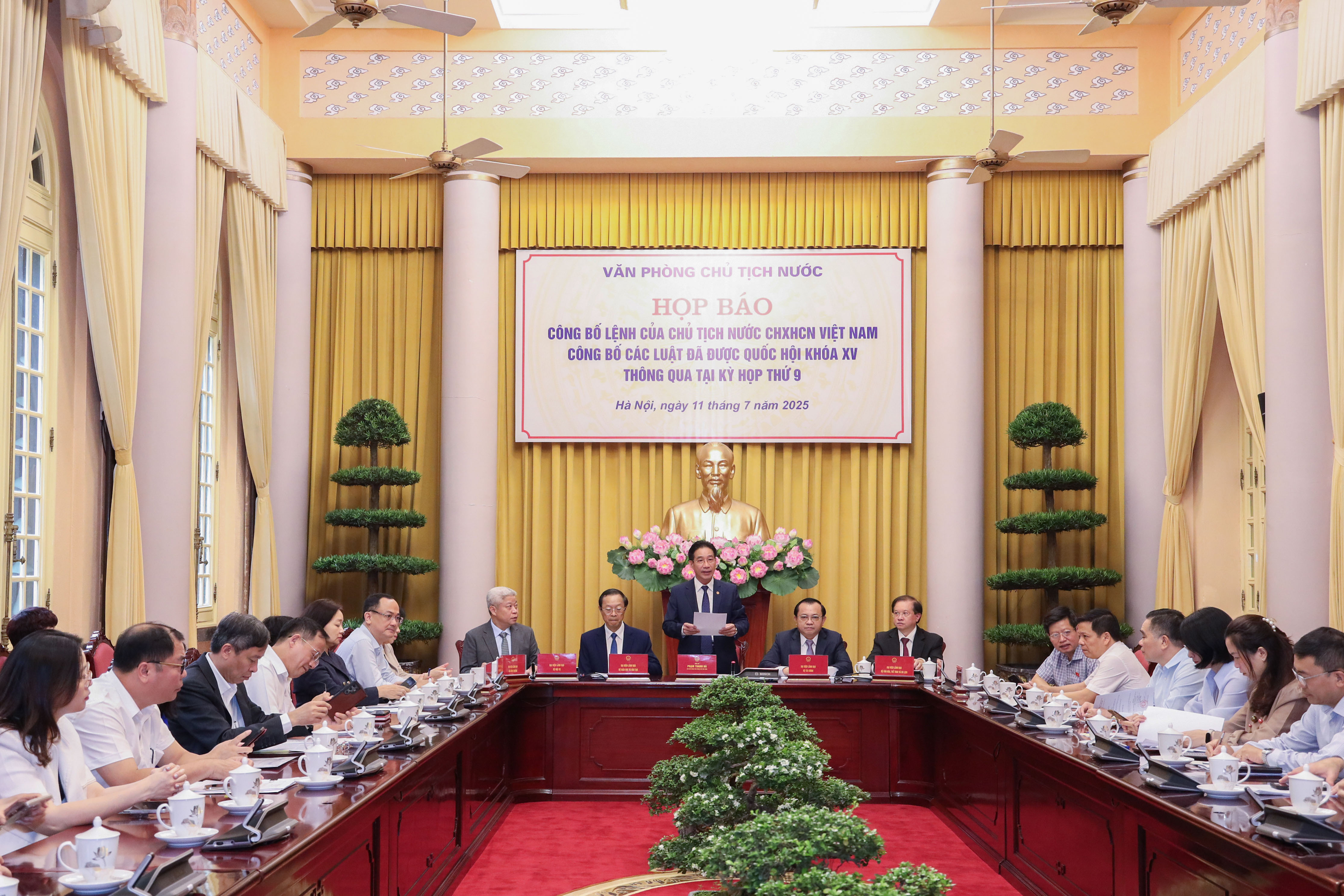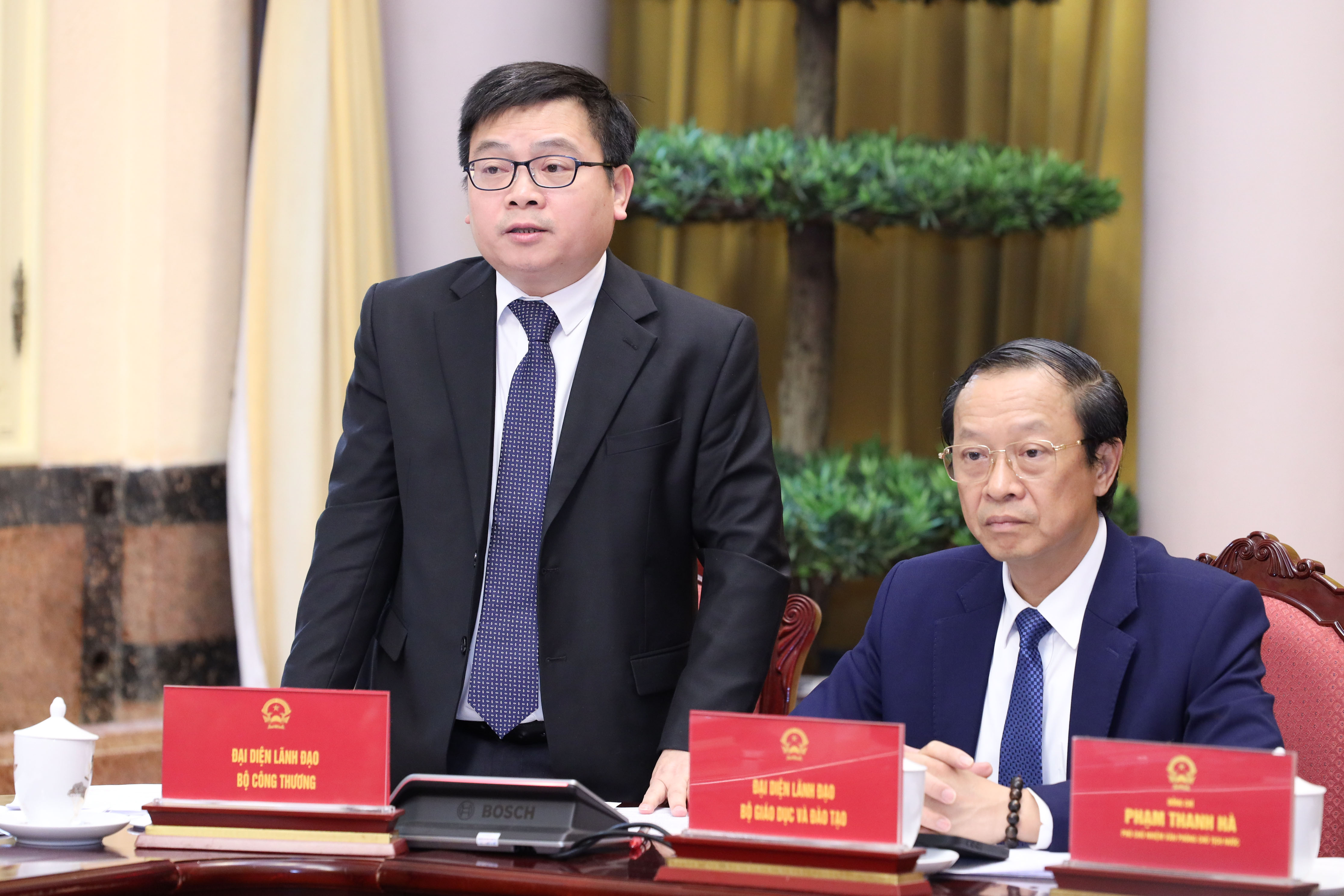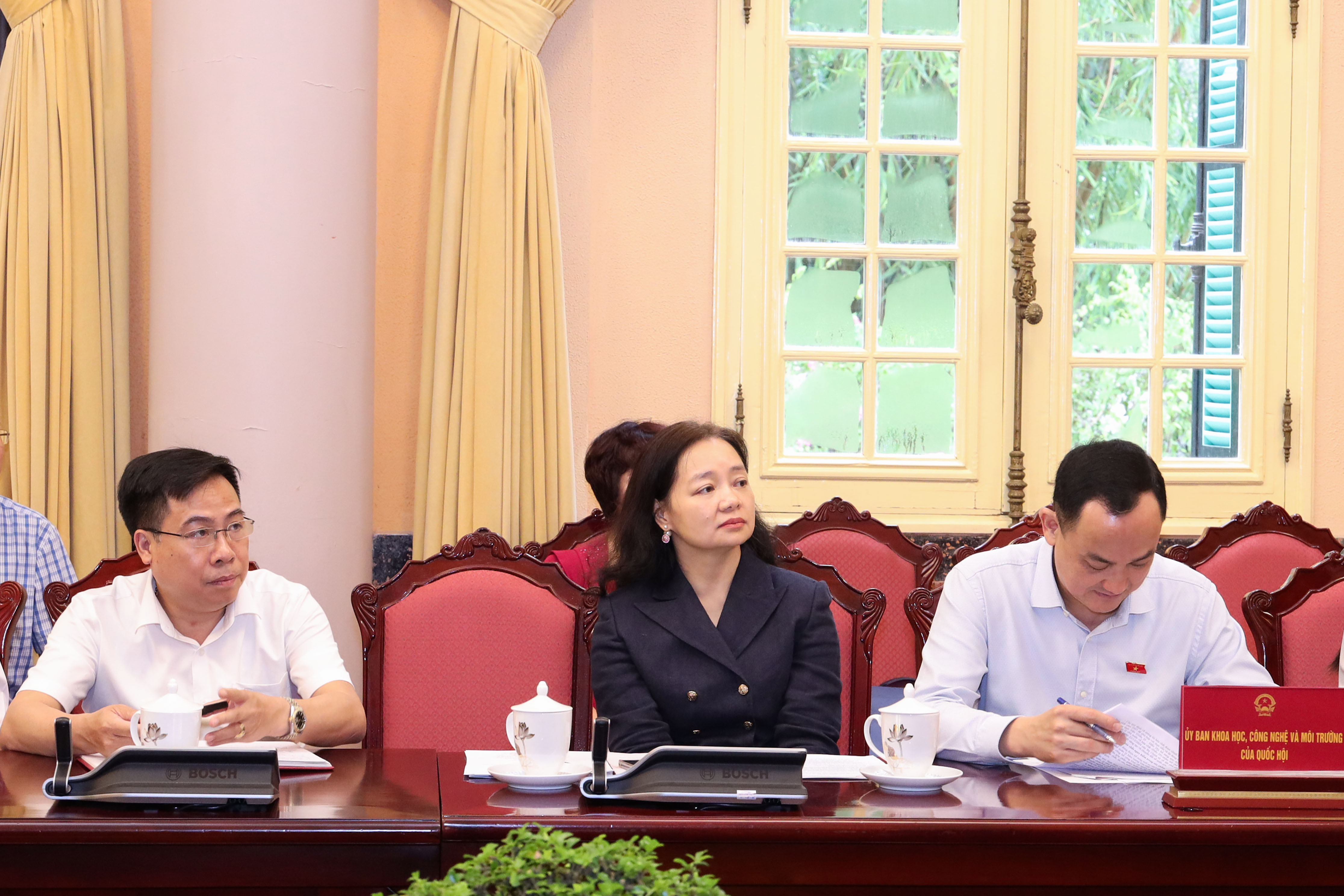The press conference was chaired by Deputy Chief of the Office of the President, Pham Thanh Ha.
At the event, Deputy Chief Pham Thanh Ha announced the President's Order promulgating several laws passed by the National Assembly: Law on Teachers; Law on Employment; Law on Special Consumption Tax; Amended Law on Advertising; Law on Chemicals; Law on Management and Use of State Capital in Enterprises; Law on Corporate Income Tax; Amended Law on Energy Efficiency and Conservation (EEC Law); Law on the State Budget.
Mr. Pham Thanh Ha, Deputy Chief of the Office of the President, delivered remarks during the press briefing.
Deputy Minister of Industry and Trade, Mr.Truong Thanh Hoai outlined the necessity for the amendments to the ECC Law, which originally was Law No. 50/2010/QH12, took effect on January 1, 2011. After 15 years of implementation, shortcomings have emerged, prompting a comprehensive review and amendments for the following reasons:
Firstly, International context and export competitiveness: Global shifts such as carbon taxes (ETS) and border carbon adjustment mechanisms (CBAM) pose pressure on Vietnam’s exports, reducing competitiveness for key export sectors like textiles, footwear, plastic, steel, energy, electronics, and seafood.
Secondly, Net‑zero commitments: Vietnam's pledge to achieve net‑zero emissions by 2050 requires stronger financing mechanisms to help domestic producers meet green standards.
Deputy Minister of Industry and Trade, Mr.Truong Thanh Hoai introduced the main objectives of the amended ECC Law.
Regarding the purpose of promulgation and viewpoints of the Law, the Deputy Minister informed: Firstly, to fully and effectively institutionalize the viewpoints and guidelines of the Party and State on the economical and efficient use of energy. Secondly, to enhance the competitiveness of Vietnamese enterprises in the face of challenges from European green regulations (Green Deal) such as carbon emissions tax, cross-border carbon adjustment mechanism on goods and services exported to the European, American, Japanese markets, etc. through financial support tools, incentive mechanisms for enterprises investing in projects on economical and efficient use of energy to meet the requirements of the export market; to promote development and expand the market for energy consulting services. Thirdly, to proactively and actively contribute to implementing commitments when participating in the 26th United Nations Framework Convention on Climate Change (COP26).
| The National Assembly of the 15th Legislature adopted the Amendments of ECC Law during its 9th session on June 18, 2025. The law will take effect on January 1, 2026. |
The Amendment of the Law on Energy Efficiency and Conservation takes effect from January 1, 2026.
The amended ECC Law builds on the four policies submitted by the Government to the Standing Committee:
First Policy: Strengthening state management in energy efficiency and conservation.
Second Policy: Enhancing energy consultancy services, energy auditing, and workforce training in the field.
Third Policy: Introducing incentives and financial tools for energy efficiency investments.
Fourth Policy: Transitioning the market and managing performance of energy‑using equipment and materials.
The new amendment ECC Law retains most of the 12 chapters and 48 articles of the 2010 version, while amending 19 articles and adding one new article.
The amended and supplemented provisions of the Law focus on improving national policies and enhancing state management regarding energy efficiency and conservation (EE&C); strengthening EE&C measures in energy production and supply facilities; reinforcing the responsibilities of designated key energy users; adding construction materials to the list of items subject to energy labeling; and refining regulations on energy service organization models.
Notably, the newly enacted Law introduces incentives and stipulates the establishment of the Energy Efficiency and Conservation Promotion Fund, considered a financial mechanism that offers flexibility and transparency to support organizations and individuals in implementing investment projects related to EE&C.
In terms of decentralization and delegation of authority, the contents under the jurisdiction of the Government, the Prime Minister, and relevant ministries have been reviewed to ensure alignment with proper authority, functions, and responsibilities. Maximum decentralization has been applied to the following three areas: Delegation of authority from the Prime Minister to provincial People's Committees for issuing the list of key energy-using facilities; Delegation of authority from the Prime Minister to the Ministry of Industry and Trade and the Ministry of Construction to issue lists and implementation roadmaps for energy-labeled equipment, vehicles, and construction materials; Abolition of the Prime Minister's role in issuing lists of energy-efficient equipment to be procured and equipped.
In addition, the Law retains one provision authorizing the Prime Minister to issue lists and roadmaps for the phase-out of equipment and vehicles, under the country’s socio-economic development and technological capacity in each specific period.
Regarding administrative procedure reform, the amended Law has eliminated 2 out of 4 administrative procedures (a 50% reduction) — specifically, procedures for issuing energy labeling certificates and energy auditor certifications — while maintaining the procedures for certifying energy managers and testing laboratories for energy performance.
DUC DO











 Consultation on the methodology for developing and updating energy consumption standards for four major industrial sectors
Consultation on the methodology for developing and updating energy consumption standards for four major industrial sectors
 Opening of the 2025 Energy-Efficient Equipment and Green Transition Exhibition Fair
Opening of the 2025 Energy-Efficient Equipment and Green Transition Exhibition Fair
 Energy-saving solutions and green transition promotion
Energy-saving solutions and green transition promotion
 The 9th VEPG Steering Committee Meeting: Strengthening Coordination for Viet Nam’s Just Energy Transition
The 9th VEPG Steering Committee Meeting: Strengthening Coordination for Viet Nam’s Just Energy Transition